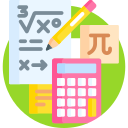Academic Programs
The Christ Junior College IB Diploma Programme (DP) curriculum is made up of the DP core and five subject groups. There are different courses within each subject group. Students will take some subjects at higher level (HL) and some at standard level (SL). HL and SL courses differ in scope but are measured according to the same grade descriptors, with students expected to demonstrate a greater body of knowledge, understanding and skills at higher level.
Students are required to:
The IB’s six approaches to teaching and five approaches to learning guide and focus educators and students in IB schools and play a crucial role in ensuring that the aspirations of an IB education at CJC-IBDP become a reality in the classroom.
The approaches to teaching in IB schools are based on inquiry, focused on conceptual understanding, developed in local and global contexts, focused on effective teamwork and collaboration, designed to remove barriers to learning and informed by assessment.
The IB’s focus on approaches to learning is grounded in the belief that learning how to learn is fundamental to a student’s education. The approaches to teaching help students identify and develop thinking skills, communication skills, social skills, self-management skills and research skills.
| Approaches to learning | Approaches to teaching |
|---|---|
| Thinking skills | Based on inquiry |
| Communication skills | Focused on conceptual understanding |
| Social skills | Developed in local and global contexts |
| Self-management skills | Focused on effective teamwork and collaboration |
| Research skills | Designed to remove barriers to learning |
| Informed by assessment |












